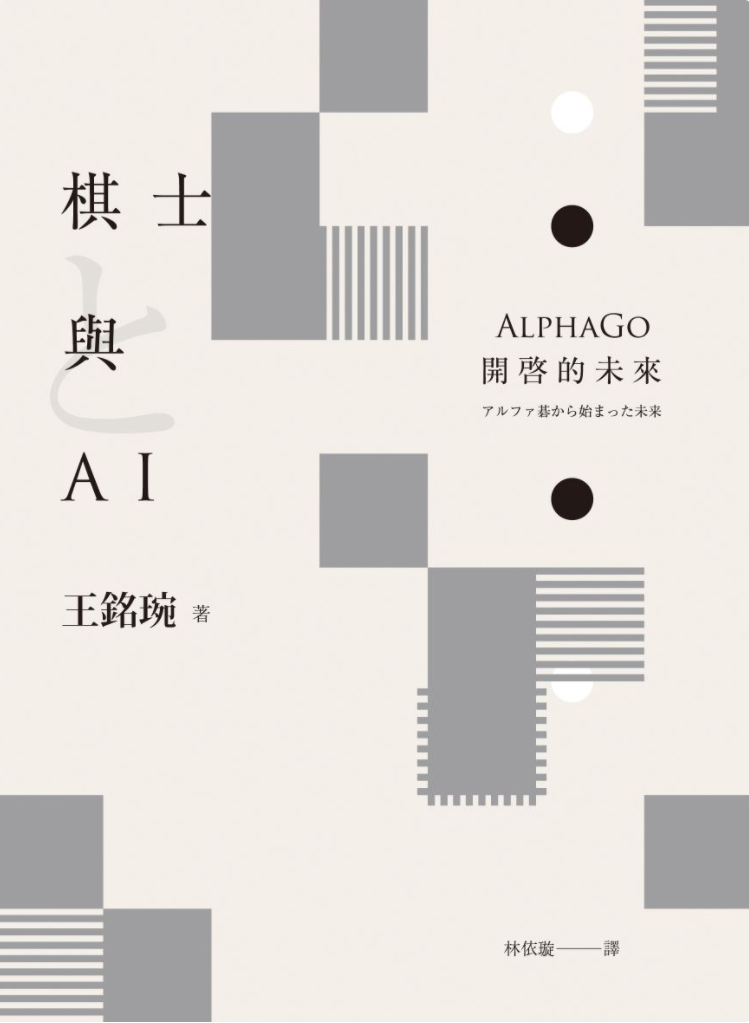AI chess player
In South Korea in March 2016, an amazing thing happened: chess player Lee Sedol played against AlphaGo. This 5-game 3-win game has been hailed as a human-machine battle of Go.
It is not the first time that a computer has played against a human, but Go has been hailed as the last fortress, because there are so many points in Go and the changes are so great that a machine may not be able to calculate it. So at that time, too many people felt that man and machine were fighting against each other, and that man had a chance to win. As a result, AlphaGo won 3 games in a row. Although Lee Sedol won the fourth game, AlphaGo returned to normal in the fifth game, winning 4-1 in total.
At that time, in addition to knowing AI, there was another thing called Deep Learning. These two terms are widely known today because AI is now used in daily life.
~~~~~~~~~~~~~~~~
There are quite a few independent bookstores opening in 2020. Because of a lecture, I met the owner of Hong Kong Book Era, and I went for a walk after work one day. The bookstore is located in a commercial building in the Flower Market of Mong Kok. On the night we went to the bookstore, there were still so many people buying flowers on the street, which was very lively. Turning into the building to the bookstore floor, it becomes very quiet, which is very different from the situation downstairs. Although the bookstore is not big, there are seats for readers to read. I think the owner is a tidy person, the floor is spotless, and I really want to sit on the floor and choose a book to read.
In fact, the bookstore has a lot of books. In addition to literature books and political books, I am surprised that there are many books on Mongolian history. I am even more surprised that there is a pillow book titled "Cultural History of "Taiwanese Cuisine": National Reflection in Food Consumption" by Chen Yuzhen, as well as a copy of "Chess Players and AI". I ended up picking the latter because I already bought the digital version of the former (unfortunately I haven't started reading yet).
~~~~~~~~~~~~~~~~
AI challenges humans, and chess players should obviously hate AI. There are two chess players who are "friendly" to AI. One is Fan Hui who helped DeepMind train AlphaGo, and the other is Wang Mingwan, who is also the author of "Chess Players and AI". Let’s first introduce Wang Mingwan, a chess player of the Japanese chess institute. He has won the title of Beninfang and the Throne. He also participated in the development of AI software. Because of this, this book not only allows readers to understand the development history of AI, the self-learning process of AlphaGo, and the evolution of AlphaGo in the future; at the same time, there are players who analyze how AlphaGo affects the development of Go.
Teacher Wang used an easy-to-understand example to talk about Go: elections. White and Black are all trying to get as many votes as possible (the "land" in Go terminology). One step at a time is like canvassing to increase the odds of winning. It's just that every canvassing does not mean that it will be helpful. Some may be immediate, and some may affect future development. At the end of the game, it depends on who gets the most votes or gives up halfway through.
Of course, Go is more than that. Teacher Wang also often mentioned that the difference between AI and chess players is "feeling". "Feel" refers to the feeling of the game and the overall situation. Therefore, when AlphaGo and Li Shiduo played against each other, there would always be a situation of "estimate you can't figure it out", and the commentators (especially South Korea) would show that they didn't understand much; Li Shiduo was even more confused because of this, because ordinary people don't know This way. Both the book and the AlphaGo documentary mentioned that AlphaGo itself only calculates the winning rate of the next child, and does not deal with the so-called global "feeling". Of course, the word "feeling" itself is "good human" (Human), and it is more difficult for a machine to understand this. However, Mr. Wang gave a very positive evaluation, believing that this would stimulate the players' thinking, to jump out of the inherent thinking and consider different ways of playing. He also described how he was inspired by AlphaGo to change the game. This reminds me of the match between Shinto Hikaru and Kansai Chess Institute Qingchun in "The Soul of Chess". The two of them started the game, one was 5 out of 5, and the other was Tian Yuan, completely "scaring relatives".
AlphaGo then "evolved" to AlphaZero, and then quit the Go world. The chess records it left behind have become the learning objects of Go lovers/players. Maybe it's a good ending, because its self-learning level has exceeded everyone's imagination. The development of AI cannot be stopped, and it can only hope to be placed in a good position.
~~~~~~~~~~~~~~~~
"Chess Players and AI"
https://www.books.com.tw/products/0010799461
King of Chess Spirits - Shinto Hikaru vs Kansai Chess Institute Qingchun [Fighting Battle between Tianyuan and 5 of 5] https://www.youtube.com/watch?v=BoiS6N_ZP4I
AlphaGo - The Movie (Full Documentary)
https://www.youtube.com/watch?v=WXuK6gekU1Y
Image source: Internet cut field

Like my work? Don't forget to support and clap, let me know that you are with me on the road of creation. Keep this enthusiasm together!
